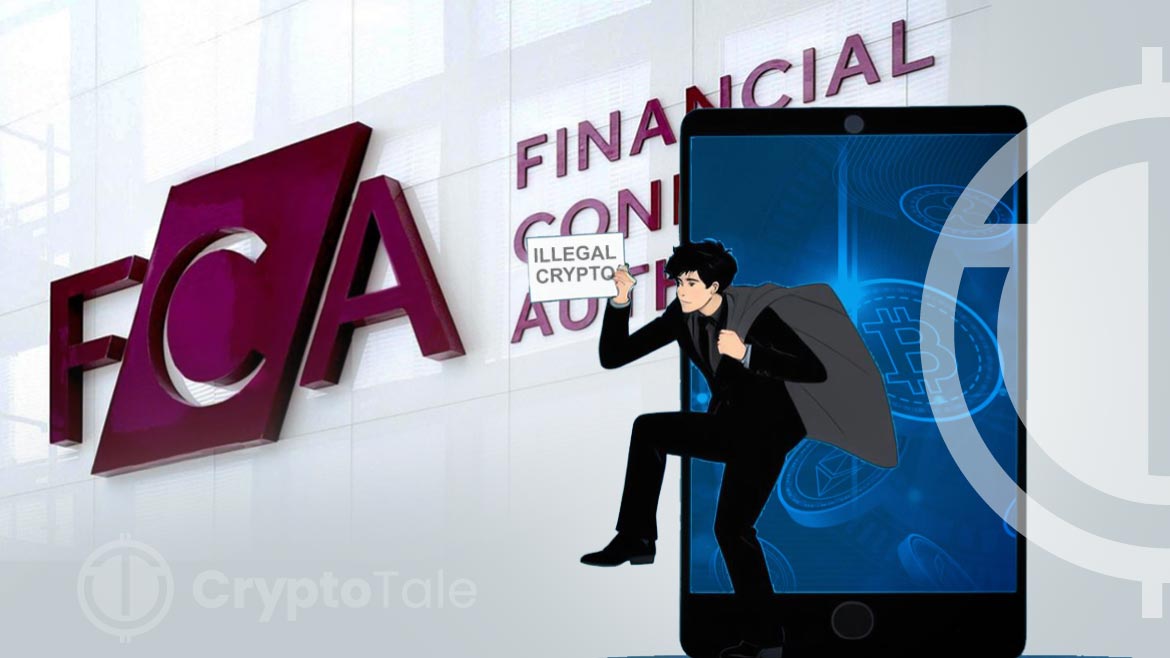- UK police arrest 2 men for £1 billion illegal crypto exchange; FCA and police seize digital devices.
- FCA enforces UK crypto laws, emphasizing strict regulations and compliance to prevent illicit activities.
- Upcoming UK elections highlight crypto regulation debates, influencing voter and policy directions.
UK authorities have arrested two individuals suspected of operating a £1 billion unregistered crypto asset exchange. The Financial Conduct Authority (FCA), in collaboration with the Metropolitan Police Service, conducted the operation, which involved the arrest of two men, aged 38 and 44, in London.
The FCA has stated that the suspects are believed to have facilitated the buying and selling of over £1 billion in crypto assets without the necessary registration and compliance with the UK’s money laundering regulations. During the operation, the police seized several digital devices and inspected the offices linked to the suspects.
The Suspected Case and Arrest
The arrests were part of a broader investigation into illegal crypto activities in the UK. According to Therese Chambers, Executive Director of Enforcement and Market Oversight at the FCA,
The FCA has an important role to play in keeping dirty money out of the UK financial system. These arrests show we will do everything in our power to stop crypto firms from operating illegally in the UK.
Both suspects were interviewed under caution and subsequently released on bail. The investigation is ongoing, and the FCA has indicated that further actions may be taken.
UK’s Evolving Crypto Regulation
The UK has been tightening its crypto regulations in recent years. Since January 2021, all crypto asset businesses providing certain services in the UK are required to register with the FCA under the Money Laundering, Terrorist Financing and Transfer of Funds Regulations 2017. Failure to comply with these regulations can result in severe penalties, including the prohibition of business operations.
Recently, the UK has introduced new measures to ensure greater transparency and accountability in the crypto industry. These include mandatory registration for crypto businesses, enhanced customer verification procedures, and stricter reporting requirements for suspicious activities.
Crypto and the UK Election Landscape
As the UK heads towards general elections, crypto regulation has emerged as a significant topic of debate. Political parties are divided on the approach to regulating crypto assets, with some advocating for stricter controls to prevent illegal activities and protect consumers, while others are pushing for a more balanced approach to encourage innovation in the financial technology sector.
Italy Enforces New Crypto Regulations with Fines Up to €5 Million: ReportCandidates are being urged to clarify their stance on crypto regulation as it could influence a significant portion of the electorate who are increasingly involved in digital assets. The outcome of the elections could shape the future regulatory framework for crypto in the UK.
Crypto’s Growing Influence in the US Election
Cryptocurrencies have become pivotal in U.S. elections, influencing regulatory debates, political donations, and candidate platforms. High-profile figures like Trump have incorporated crypto into campaigns, while the SEC’s decisions on crypto regulations and ETFs shape public sentiment. Crypto’s growing political presence underscores its impact on U.S. politics.






